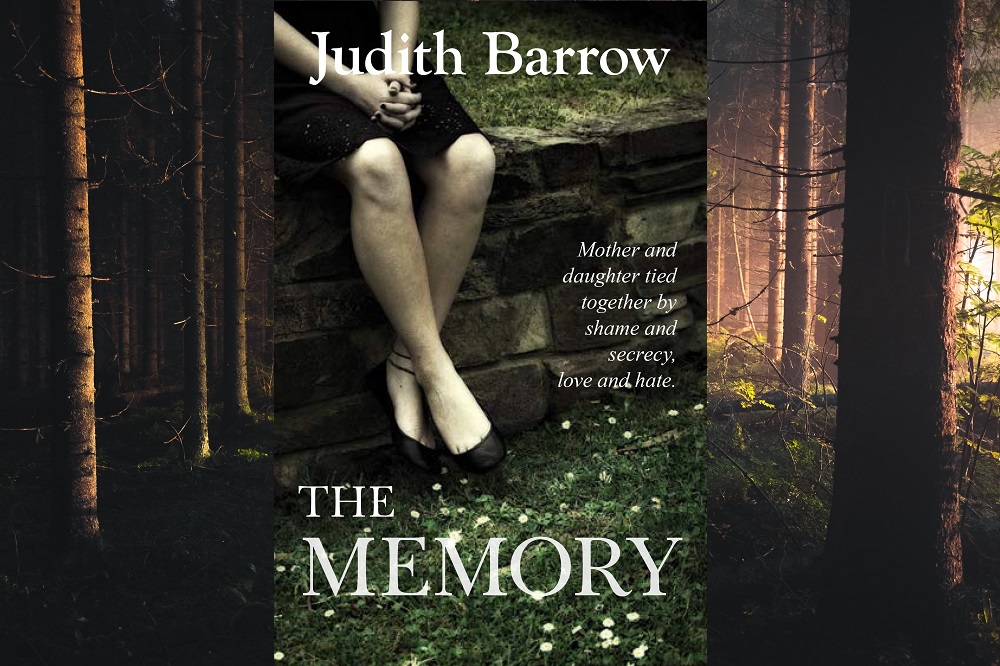Review: The Memory has a tightly wrought and finely controlled plot

Jon Gower
After a sprawling, four-volume Howarth family saga set in Lancashire and Ireland this latest novel by Pembrokeshire writer Judith Barrow has a much tighter focus, being essentially the life of one woman, Irene. She is a woman tested to the very limits and beyond as she weaves her way past breaking point after breaking point.
Her exceedingly well-loved sister Rose dies in very suspicious circumstances and the finger of blame for her demise points firmly at Irene’s mother Lil, an increasingly needy, fully-paid-up-member-of-the-awkward-squad. But life has a habit of conspiring against Irene and she finds herself having to care for mother.
Which means Irene’s builder husband Sam can’t live in the same house, especially when his estranged mother – who abandoned him many moons ago – moves in too, in the meanest twist of fate. As with any tragedy the ratchet turns and turns on Irene, intensifying the pain of her caring, carer existence. Every hour is a test. She spends her days tending to her mother even though she has ample reason to hate her. She watches her mother in bed, wondering if a photograph of a family trip to Morecambe she is looking at has triggered memories of the occasion:
“Or is she seeing something else? A memory? That memory? I’m hoping that of all the recollections that linger, if any do linger in that blankness that has been her mind for so long, it’s that one. The one that makes hate battle with pity and reluctant love. If nothing else, I hope she remembers that.”
Irene, meanwhile, is sustained by very different memories and spectral glimpses of her dead sister Rose, an affectionate young girl with Downs’ Syndrome who seems to haunt the family home even thirty years after her mysterious death, thus making it impossible for Irene to leave. Irene does manage to break free for a brief while for after a long wait, a council house for her and Sam rewards them with a new home brim-full of hope and an intention to start a family.
Redemptive
But in a life crammed to the gills with disappointment, the young couple find they are infertile and despite the advances of HRT their local GP won’t prescribe such expensive fertility treatment. Irene’s life seems like a thick Littlewoods catalogue of such thwartings.
Irene’s life is told in a series of flashbacks to the 60s and early 70s, with a soundtrack of Billy J. Kramer and Rod Stewart in a time of romantic meals washed down with Mateus Rosé wine and people tottering around on platform soles. This wash of memories is interspersed by brief, highly intense glimpses of Irene’s present life of sufferance over the span of twenty-five hours when the heating fails and she is forced to clean her incontinent mother by joining her in a cold shower.
Hour by hour we feel the wearing, wearying, spirit-breaking nature of the daily grind. Fortuitously, Judith Barrow has put us very much on Irene’s side, batting for her, and it comes as enormous relief when life finally picks up for her and this turns into an ultimately redemptive novel.
The cover blurb suggests this is a book about a ‘Mother and daughter tied together by shame and secrecy; love and hate’ and it’s all that and more and I won’t spoil the tightly wrought and finely controlled plot by revealing the biggest secret of all but will say the reveal is very deftly handled.
The writing throughout The Memory is clear, uncluttered and unadorned and it’s interesting to see how Barrow manages to flesh out Irene’s life without slathering on the psychology but rather by sticking to the story.
You put the book down having got to know a woman who melds steel with sensitivity and find yourself wishing her well, as a better future unrolls deservedly before her and the long, long suffering is finally over.
The Memory by Judith Barrow is published by Honno and can be bought here.
Support our Nation today
For the price of a cup of coffee a month you can help us create an independent, not-for-profit, national news service for the people of Wales, by the people of Wales.






